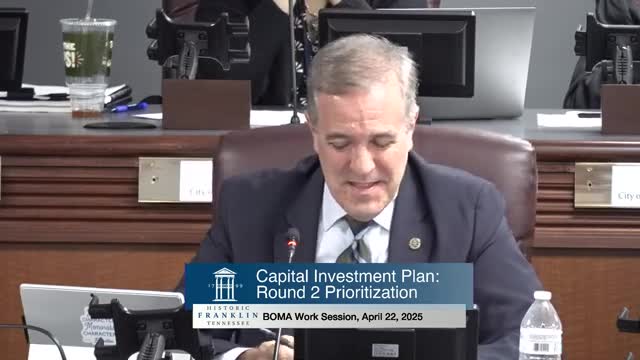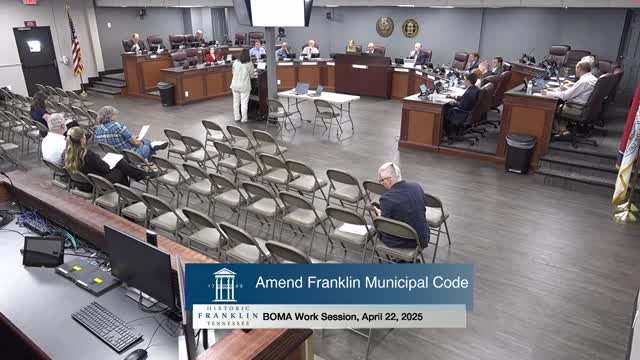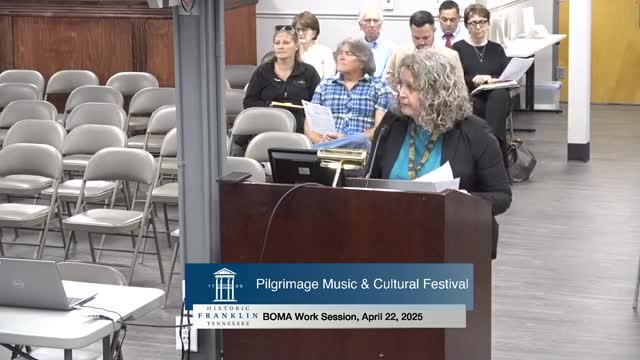Article not found
This article is no longer available. But don't worry—we've gathered other articles that discuss the same topic.

City staff and aldermen settle on ‘Serve. Connect. Lead. Deliver.’ as mission framing for Franklin strategic plan

Ordinance amendment would allow public‑art projects to qualify for parkland impact fee reimbursement

Board weighs up to $650,000 in city funds to support stormwater work for Franktown Open Hearts facility

